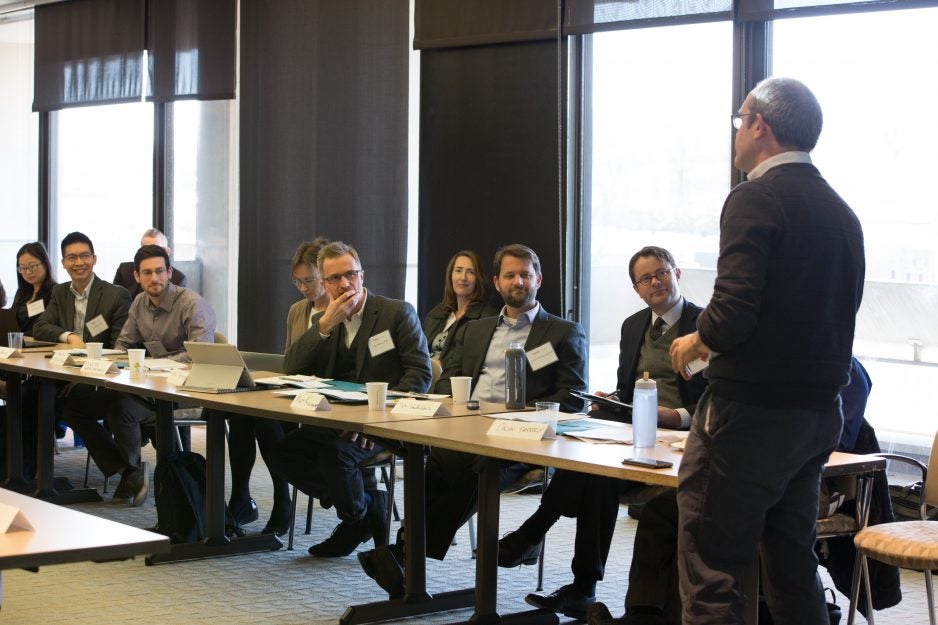On April 5-6 2018, in collaboration with the Human Flourishing Program at Harvard University, the Center organized and hosted an interdisciplinary workshop on the dimensions and measurement of human well-being.
The goal of the workshop was to examine recent empirical research on well-being and issues related to its measurement, and also to consider the philosophical and theological perspectives on happiness, well-being, and the good life. The workshop was aimed at addressing three central questions: 1) how to determine which aspects of well-being are best to measure in which contexts, 2) how major dimensions of well-being relate to each other, and 3) how to make progress in the face of the proliferation of well-being measures in research, surveys, and polls.
The workshop took place on the Harvard Longwood Campus and brought together over 30 scientists from the U.S and internationally across various disciplines such as psychology, philosophy, theology, economics, and statistics, to pursue a range of activities to advance the understanding of subjective well-being and its measurement. The diverse group of scholars are working collectively to develop next steps for action and may publish their findings and recommendations in an open-access monograph or journal which will be available to a wide academic and professional audience.
Findings from this workshop have the potential to make a significant scientific impact in the field by bringing together leading experts on the topics of measurement and well-being who will join their efforts in disseminating their findings and recommendations among members of the scientific community to guide future research. This work will redirect conversations around this topic and will help to inform future social and economic policies for improving the public’s health. Participants were asked to consider possible ongoing activities to resolve important questions around measuring and monitoring well-being. Next steps might include applying to other funding agencies to support an ongoing network of investigators to enable sustained focus on this topic or embarking on critical research to evaluate more systematically which components of human well-being are critical for future studies and for monitoring purposes.

